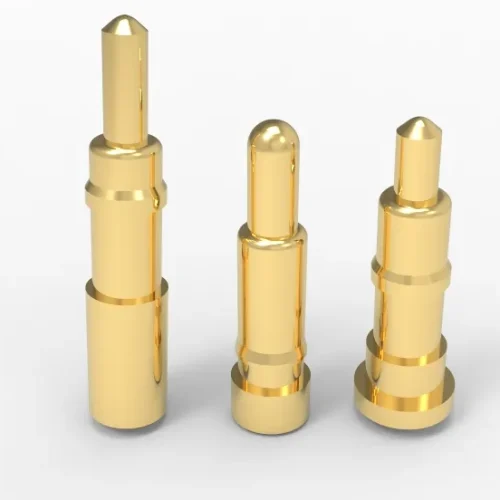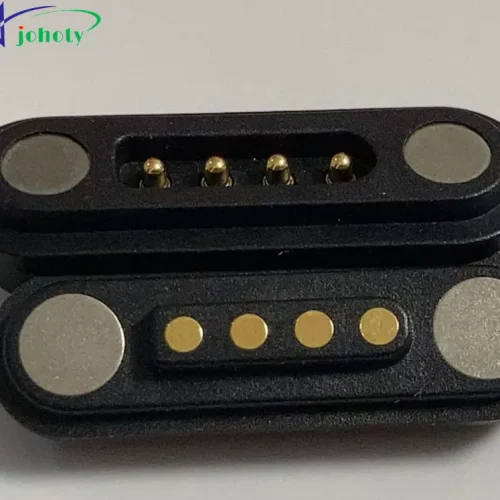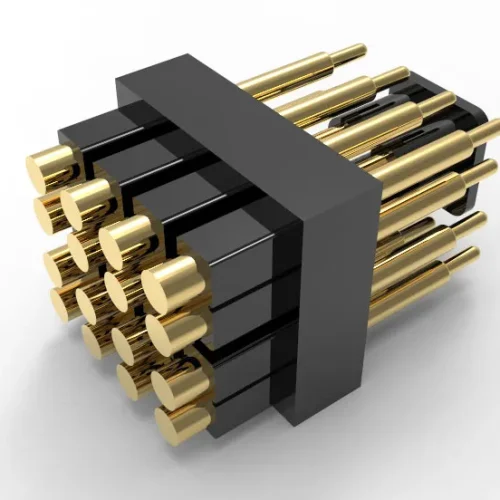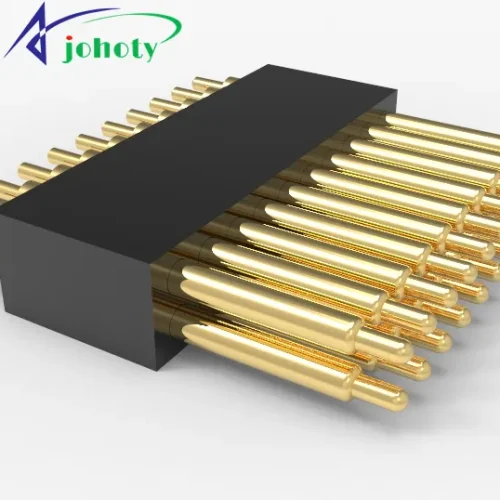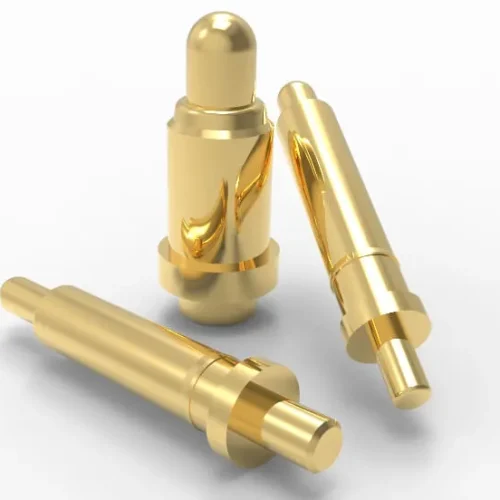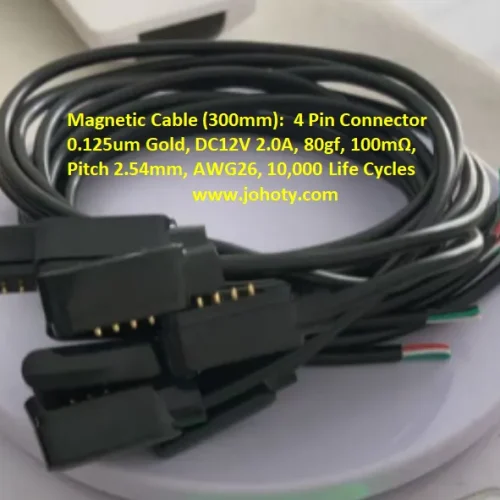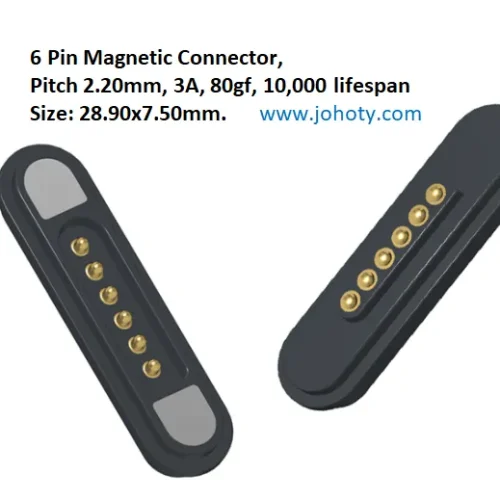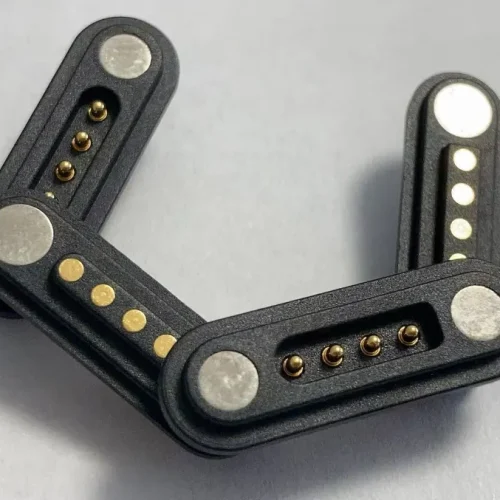Lead Screw Applications: Learn About Johoty’s Broad Array of Lead Screws and How They Cater to Different Industry Requirements Efficiently
Introduction
What are lead screw applications? Lead Screw drives are becoming increasingly common in modern industries. Whether in automation equipment, medical devices, or aerospace, lead screws play a key role in mechanical transmission. This article explores the various lead screws offered by Johoty, covering their design, materials, and performance, to help you select the right lead screw for your specific industry needs.
We’ll start by reviewing the basics of lead screw drives, then examine real-world applications across different industries, highlighting how lead screws boost efficiency and precision. Additionally, we’ll look at the latest innovations in lead screw technology to meet evolving market demands. Whether you’re an engineer, procurement manager, or researcher, this guide will provide you with comprehensive knowledge to make informed decisions about lead screw selection and use.

Lead Screw Drive Fundamentals Based on Lead Screw Applications
A lead screw drive converts rotational motion into linear motion, based on the following principles:
- Design: Precision lead screws typically consist of a threaded rod and a nut. The thread design and spacing are finely tuned for smooth and efficient power transfer when rotating.
- Thread Types: Trapezoidal threads handle higher loads, while ball screws, with rolling contact, reduce friction, offering higher efficiency and precision in high-load, high-speed settings.
- Motion Conversion: As the lead screw rotates, the nut moves a specific distance based on the thread pitch, converting rotational to linear motion.
- Materials & Manufacturing: High-precision lead screws use durable materials like alloy or stainless steel, treated for strength and longevity. Advanced manufacturing ensures micron-level thread tolerances for high-accuracy movement.
- Applications: These lead screws are used in CNC machines, robotics, and 3D printers, excelling in demanding environments requiring precise performance.
Knowing these basics will help you pick and use the right lead screw drive more effectively to enhance your equipment’s performance.

Industry Lead Screw Applications Overview
- Manufacturing: lead screws control the movement of tools and workpieces in CNC machines and automation equipment for high-precision machining.
- Robotics: Used in industrial and collaborative robots to ensure precise positioning and smooth movement of robotic arms, boosting production line efficiency and flexibility.
- Medical Devices: High-precision lead screws fine-tune and position equipment like surgical tables and imaging devices, ensuring safe and accurate medical procedures.
- Aerospace: Applied in control systems, testing equipment, and navigation systems to maintain stability under extreme conditions, meeting high safety standards.
- 3D Printing: Control the movement of print heads for high precision and consistency, enhancing printer performance and print quality.
- Optical Equipment: Used in microscopes and laser devices to adjust focus and angles, ensuring precise image capture and analysis.
- Precision Measuring Instruments: Ensure high-accuracy linear movement in measurement devices, improving reliability and accuracy of results.
- Textile Machinery: Control weaving processes in the textile industry to ensure production efficiency and product quality.
- Printing Industry: Used in printers to control the movement of paper or materials for high-precision printing and increased efficiency.
- Food Processing: Lead screws automate operations in food packaging and processing equipment, ensuring efficient production and hygiene.
- Automotive Manufacturing: Precisely control the position and movement of components in assembly and testing equipment, enhancing efficiency and quality control.
- Machine Tool Maintenance: Ensure normal operation and extend the lifespan of machines through the precision of lead screws during maintenance.

Lead Screw Applications in Different Industries
1. Automation Equipment Lead Screw Applications
- Boosting Production Efficiency: High-precision lead screws are key components in modern automation equipment. For example, CNC milling machines with these lead screws achieve a positioning accuracy of ±0.01mm. Market research shows that using such lead screws improves machining precision by 30% compared to traditional equipment. A well-known manufacturer saw a 15% increase in parts quality and a 20% boost in production efficiency after adopting Johoty’s high-precision lead screws, thanks to their quick response and high repeat accuracy, which reduces processing time and increases output.
- Key Technical Indicators: High-precision ball screws are widely used for transporting and positioning workpieces on automated assembly lines. These devices can move over 1,000 times per minute, meeting the high-volume demands of modern manufacturing. Data indicates that introducing high-precision ball screws improved the overall efficiency of an automated production line by 25% and significantly reduced waste, enhancing product consistency. These advancements are crucial for the smart transformation of the manufacturing industry.
2. Medical Equipment Lead Screw Applications
- Precision Adjustment and Safety: In medical devices, high-precision ball screws ensure accurate adjustments and stability. For instance, modern surgical tables can adjust their height with a precision of ±1mm using a lead screw system. Studies show that surgical tables equipped with high-precision lead screws can increase surgical success rates by 5% to 10%, which is vital for complex minimally invasive procedures.
- Image Clarity in Imaging Equipment: In imaging devices like CT and MRI machines, ball screws adjust the distance between detectors and patients to obtain clearer image data. With precise motion control, these devices can operate at speeds of up to 1,200 images per hour, enhancing diagnostic efficiency. Data reveals that imaging equipment with high-precision lead screws improves image quality by 30% over traditional systems, providing doctors with more accurate diagnostic information.
3. Lead Screw Applications in Robotics
- Precision Positioning and Operation: High-precision lead screws are essential for accurate positioning and efficient operation in robotics. Modern industrial robots use ball screw systems to control the movement of their arms, achieving positioning accuracy of ±0.02mm. This precision enables robots to excel in tasks like assembly, welding, and painting, minimizing errors in the production process.
- Enhanced Production Line Flexibility: A survey shows that robots using high-precision lead screws are 30% more efficient than traditional robots. For example, after a car manufacturer introduced lead screw-driven robots, the flexibility of their assembly line greatly improved, allowing quick adjustments for different vehicle models. This efficient motion control also reduced production cycles by 15%.
4. Lead Screw Applications in Automotive Manufacturing
- Precision Machining and Consistency: In the automotive sector, high-precision lead screws are crucial in manufacturing engine components and chassis. With lead screw systems, machines can achieve cutting accuracy within ±0.005mm, ensuring tight tolerances for each part. Data indicates that production lines using these lead screws improve product consistency by 20%, significantly lowering rework rates.
- Overall Production Efficiency: Additionally, high-precision lead screws control welding and assembly processes on automated lines. Research shows that optimizing lead screw systems boosted a car manufacturer’s production efficiency by 25% while reducing production cycles by 10%. This ability not only satisfies market needs but also fuels ongoing innovation in the auto industry.

Introduction to Different Types of Lead Screws
- Ball Screws: Known for low friction and high efficiency, ball screws are widely used in equipment that requires fast and precise positioning. Their design allows balls to roll between threads, significantly reducing friction loss. They achieve over 90% efficiency, which is a 20% improvement over traditional screws. In a case study, a CNC machine manufacturer increased production efficiency by 30% and improved machining precision after adopting ball screws.
- Trapezoidal Lead Screws: With a sturdy structure and good load capacity, trapezoidal screws are commonly used in heavy-duty transmission systems. Their unique trapezoidal thread design enhances load-bearing capabilities for various industrial applications. Equipment using trapezoidal screws experiences a 15% lower failure rate under high loads and a 40% increase in load capacity. In an automated production line, these screws significantly improved equipment stability and reliability.
- Precision Lead Screws: Designed for high-precision applications, precision lead screws are often found in high-end devices and measuring instruments. Their manufacturing process tightly controls tolerances at the micron level. Studies show that equipment using precision lead screws can achieve a positioning accuracy of ±0.005mm, greatly enhancing measurement accuracy. In a medical imaging case, image resolution improved by 20% with the use of precision lead screws.
- Stainless Steel Lead Screws: Stainless steel screws are prized for their strong resistance to rust and long-lasting durability, making them ideal for tough conditions and high humidity. Industry data indicate that their lifespan is 50% longer than that of regular steel screws. In the chemical industry, stainless steel screws significantly lowered maintenance costs and improved equipment reliability, becoming a preferred solution for many businesses.
- Composite Lead Screws: With lightweight and high-strength characteristics, composite lead screws are gaining popularity. Their design aims to reduce weight while maintaining good performance. Equipment using composite screws can weigh 30% less while keeping transmission efficiency above 85%. In aerospace, their lightweight nature greatly improves aircraft performance and fuel efficiency.
- High-Temperature Lead Screws: Specifically designed for high-temperature environments, high-temperature screws are suitable for metallurgy and plastics processing industries. Their materials are specially treated to operate stably in environments up to 300°C. Experimental data show that their performance remains good at high temperatures, with durability improved by 40% over conventional screws. In a metallurgy plant application, these screws effectively reduced equipment failures and downtime.
- Ball Nut Lead Screws: Ball nut screws use balls as contact surfaces to reduce friction and enhance transmission efficiency. Their design allows for smoother force transfer, making them ideal for high-frequency motion applications. Data shows that ball nut screws can achieve up to 95% transmission efficiency. In precision equipment applications, using ball nut screws reduced energy consumption by 15% while increasing speed and accuracy.
- Micro Lead Lead Screws: Micro lead screws are ideal for small devices with limited space, commonly used in medical instruments and precision devices. Even though they are small, they offer high accuracy, with positioning precision of ±0.01mm. Their effectiveness is notable in small robotic arms; in one research project, using micro lead screws improved equipment sensitivity by 25%.
- Double Nut Lead Screws: Double nut screws reduce backlash and enhance positioning accuracy through their dual-nut design. They are commonly used in high-load and high-precision settings, with backlash kept within ±0.01mm. In a high-precision measurement device, adopting a double nut design reduced measurement error by 20% and significantly improved stability.
- Self-Locking Lead Screws: Self-locking lead screws have a unique design that allows them to hold their position without power, making them suitable for elevators and lifting equipment. They can support loads up to 500kg. In a lift platform application, using self-locking lead screws greatly enhanced safety and stability, leading to a 15% increase in customer satisfaction.
- Long-Stroke Lead Screws: Long-stroke lead screws are designed for applications requiring extensive movement, widely used in machine tools and automation equipment. Their stroke can reach several meters, suitable for complex machining tasks, with movement precision maintained at ±0.02mm. In an automated production line project, implementing long-stroke lead screws increased efficiency by 25% and significantly shortened production cycles.
- Isolation Lead Screws: Isolation lead screws are designed to reduce vibration and noise, ideal for environments needing quiet operation. Their structure effectively absorbs vibrations, enhancing user experience. In a high-end audio device, using isolation lead screws reduced noise by 30%. In medical equipment, these lead screws significantly improved patient comfort and operational stability.
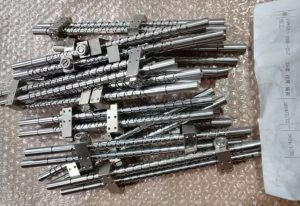
Technical Features of Lead Screws
- High Precision Design: Johoty’s high-precision lead screws are made using advanced manufacturing techniques, ensuring thread tolerances of ±0.01mm. This level of accuracy allows for stable operation in demanding applications, especially in precision equipment and measuring instruments. Data shows that devices using these lead screws improved positioning accuracy by 15%, effectively reducing waste due to errors.
- Superior Load Capacity: Johoty’s lead screws are made to manage large axial loads effectively. Testing indicates that their load capacity under continuous use is 40% higher than traditional products. For example, in a large machinery application, Johoty’s high-precision lead screws achieved a load capacity of 3000N, significantly enhancing operational efficiency and lifespan.
- Low Friction Coefficient: Featuring special materials and surface treatments, Johoty’s high-precision lead screws have a friction coefficient below 0.1, greatly reducing energy loss. This low-friction design improves efficiency by 25% during motion. In automation equipment, it boosts energy efficiency and helps components last longer.
- Corrosion Resistance: Made from high-quality materials, Johoty’s lead screws offer excellent corrosion resistance, making them suitable for harsh environments. This is vital in the chemical and pharmaceutical fields. Corrosion tests show that Johoty’s lead screws last 50% longer than standard lead screws in humid and chemical environments.
- Customized Services: Johoty provides tailored lead screws based on specific customer needs, ensuring optimal performance in various complex environments. Data indicates that customer satisfaction increased by 20% through these customized services, with many companies reporting that the performance of customized products exceeded expectations.
- Reliable Technical Support: Johoty not only offers high-performance lead screws but also comprehensive technical support and consulting services. Their technical team provides professional solutions based on customer requirements. Data shows that 90% of customers using Johoty products expressed satisfaction and willingness to recommend the brand, reflecting Johoty’s strong reputation and reliability in the industry.
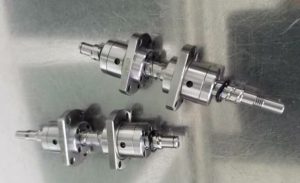
Choosing the Right Lead Screws
- Determine Application Needs: When selecting Johoty’s high-precision lead screws, it’s essential to identify specific application requirements, including load capacity, precision, and speed. Over 70% of equipment failures stem from mismatched screw choices. Accurately assessing the maximum load and motion precision needed is crucial. For high-load industrial automation equipment, choose screws with a load capacity of over 2000N.
- Select the Right Thread Type: Johoty offers various thread types, including ball screws and trapezoidal screws. Ball screws are best for high-efficiency, low-friction applications with over 90% efficiency, while trapezoidal screws are suited for heavy-duty, high-strength situations. Studies show that poor selection can reduce equipment efficiency by over 30%, so choose based on specific use cases.
- Consider Installation Space: It’s also important to account for installation space limitations. Johoty’s high-precision lead screws come in various sizes and lengths to fit different designs. Research indicates that about 65% of design errors are due to overlooking space constraints, so screw dimensions should be considered early in the design process.
- Materials and Surface Treatment: Johoty’s lead screws offer a variety of materials and surface treatments, such as stainless steel and chrome plating. Choosing corrosion-resistant materials is critical for harsh environments. Studies show that using corrosion-resistant screws can extend lifespan by 50%. In the chemical industry, these screws have significantly reduced maintenance costs.
- Evaluate Cost and Benefits: Finally, when selecting high-precision lead screws, assess the cost versus benefits. While high-precision products may have a higher initial investment, they can save operational costs in the long run due to improved efficiency and reduced failure rates. Data shows that maintenance costs can decrease by 20% to 30% with high-precision screws. Running a cost-benefit analysis before deciding guarantees the best return on your investment.
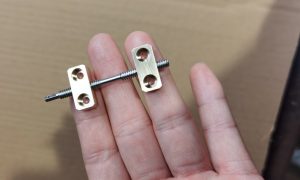
Conclusion
This discussion highlights the essential role of lead screws in modern industry. Through an in-depth analysis of Johoty’s various lead screws and lead screw applications, we see their broad applicability and flexibility across different sectors. Lead screws are crucial for enhancing production efficiency, ensuring equipment precision, and driving technological innovation.
We also covered key factors to consider when choosing lead screws, including load capacity, material properties, and working environments. We hope this guide clarifies how to select the right lead screw based on specific needs.
As technology improves, lead screw design and use will keep evolving. We recommend that professionals stay informed about these trends to maintain their advantage. If you have any questions or needs regarding Johoty’s lead screws, feel free to contact us for support and solutions.



